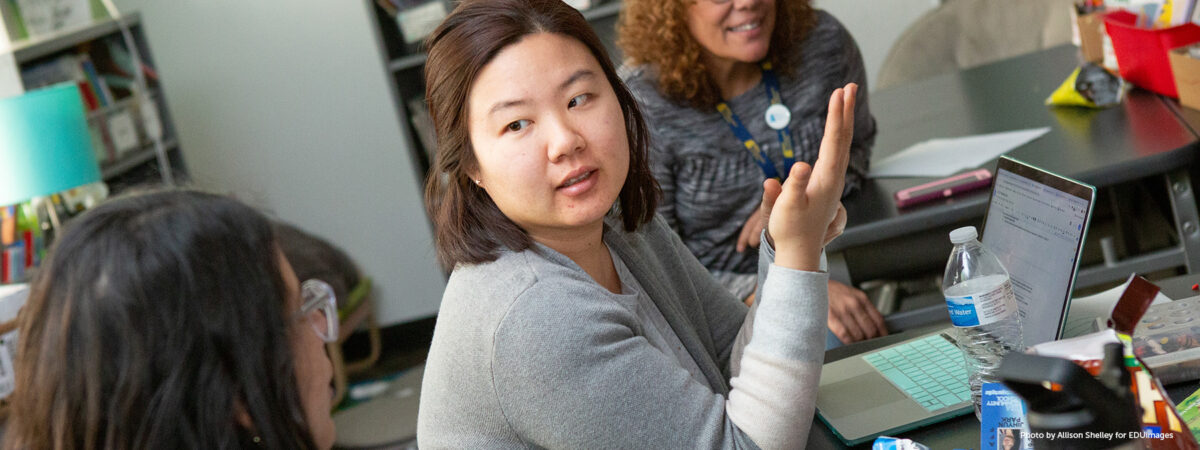
The Mapping, Clarifying, and Communicating Key Ideas about Collaborative Learning team is thrilled to announce a series of resources on collaborative learning. These resources were created through a new approach involving informed design and development with both researchers and practitioners to make classroom collaboration more successful. Instead of researchers working in isolation to create materials that practitioners later implement in their classrooms, we brought these groups into the same virtual space to work together from day one.
For the past four years, expert teachers, coaches, principals, and researchers rolled up their sleeves to map the research literature, establish joint priorities, explore topics, and co-design materials to translate research into useful, evidence-based, meaningful classroom resources that support collaborative learning. The researchers and practitioners shared stories, challenged each other’s views, and learned from one another. The result? A set of research-backed, practice-proven resources designed to help teachers, coaches, principals, and leaders foster and support powerful collaboration in classrooms.
These materials don’t just reflect what we know about collaborative learning—they embody how collaborative learning should be done: through trust, shared purpose, and deep, cross-disciplinary engagement with practitioners and researchers together. Our team was dedicated, sometimes meeting early in the mornings or on the weekends to engage in this bi-directional learning process. Although it was difficult to get everyone together, the result of collaboration was well worth the effort.
In addition, these co-created materials were reviewed by a community of peers. Researchers and practitioners who were not part of the creation process provided helpful feedback to make the resources better. We express our sincere gratitude to the many individuals who participated in this process.
Based on practitioner feedback, we developed three types of material that go beyond simple academic resources. While some of the resources are geared towards those seeking a deeper understanding of the underlying principles of collaborative learning, our research-backed toolkit focuses on the creation of practical materials for educators. This toolkit addresses practitioners’ immediate needs by demonstrating how to implement collaborative learning strategies, such as strategies for grouping students and giving important roles, and how to monitor and assess collaborative learning. The toolkit also describes how to create a classroom culture where everyone feels they belong, and shares what these strategies look like in practice
Throughout the project, practitioners repeatedly stated they wanted to see examples of “good” collaborative practices. As a result, we visited two classrooms and filmed collaborative learning in action to really show what happens in practice. Sections of these films will be included with our collaborative resources along with expert reflections and annotation forms suitable for individual or group reflection.
We encourage educators to explore the website to review the primers and toolkit, reflect on the video examples, and let us know what you think. We hope these collaboratively developed resources will inspire and support educators in creating dynamic and engaging learning environments. Finally, remember that fostering collaborative learning is an ongoing process. We hope these resources support your collaborative learning implementation in the classroom, regardless of your experience level.
Want to know more about this project? Find more resources: